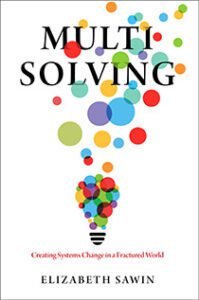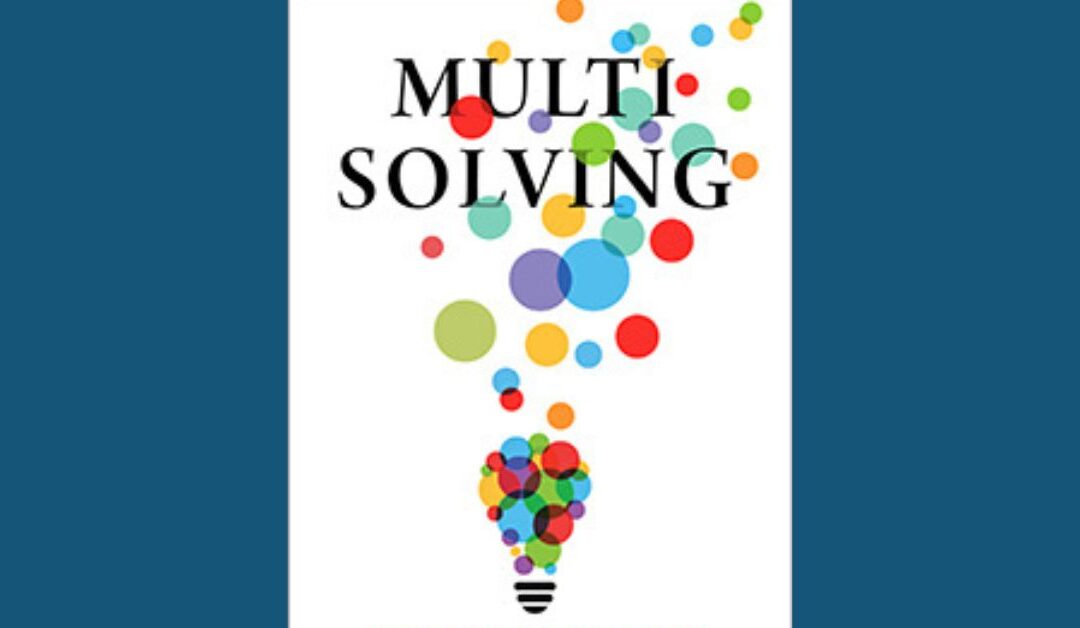By Ross Thrasher
The Post-Carbon Institute is a US-based nonprofit whose declared mission is “to lead the transition to a more resilient, equitable, and sustainable world by providing individuals and communities with the resources needed to understand and respond to the interrelated ecological, economic, energy, and equity crises of the 21st century”.
 PCI produces the daily resilience.org e-newsletter, and hosts the occasional online event on relevant topics. A recent PCI webinar entitled “Why won’t anyone listen?” was presented by Elizabeth Sawin, the Director of the Multisolving Institute and a former co-founder of the Climate Interactive think tank. She has cross-disciplinary academic credentials in molecular genetics and computer simulation.
PCI produces the daily resilience.org e-newsletter, and hosts the occasional online event on relevant topics. A recent PCI webinar entitled “Why won’t anyone listen?” was presented by Elizabeth Sawin, the Director of the Multisolving Institute and a former co-founder of the Climate Interactive think tank. She has cross-disciplinary academic credentials in molecular genetics and computer simulation.
Dr. Sawin’s current objective is to help build connections across many of our contemporary socio-economic silos, such as inequity, diversity, mental health, and environmental sustainability. In the webinar she admitted that her previous strategy of simply communicating facts to unlock action had failed. She has now learned that we need to experience and work through uncomfortable feelings like fear, grief and anger. To turn these in a positive direction, developing a vision of desirable outcomes is the first requirement. If people share their visions, they can come to recognize mutual advantages and opportunities for partnership.
Dr. Sawin gave the everyday example of improving bicycle pathways in a city. This innovation meets multiple visions: to provide an economic alternative to cars and transit; to reduce traffic congestion and air pollution; to encourage physical fitness; and to enable connecting with like-minded riders.
 The visioning exercise requires practice in order to identify who’s helping, what new structures are being created, what species are affected. Sawin exhorted the audience to make the vision real by putting it into practice at home. To model and foster environmental stewardship, there may be opportunities to grow one’s own food, drive an EV, make one’s home greener through solar panels and heat pumps.
The visioning exercise requires practice in order to identify who’s helping, what new structures are being created, what species are affected. Sawin exhorted the audience to make the vision real by putting it into practice at home. To model and foster environmental stewardship, there may be opportunities to grow one’s own food, drive an EV, make one’s home greener through solar panels and heat pumps.
Dr. Sawin has adopted the term Multisolving to describe this strategy of connecting to produce many benefits and enhance social cohesion; reframing one’s vision to see the priorities of others. Her new book, Multisolving: Creating Systems Change in a Fractured World, will be published in November. Watch for a review here in a future issue.
Read articles on climate change, sustainability, education, and more from GTEC’s Communication & Media (formally GTEC Blog)!
GTEC is at the forefront of solutions to the social and environmental challenges of our time. Our Climate Response Centre will be the Hub in our Community-based Collaborative Model. The Centre will be an interconnecting hub serving as a source of programming, consultation and support for community organizations in the effort of strengthening climate change resilience in communities.

